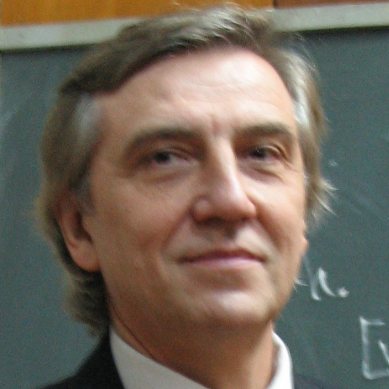
Oleksandr Mikhalyov
Work place: National Metallurgical Academy of Ukraine, Dnipro, Ukraine
E-mail: maillich2@gmail.com
Website:
Research Interests: Computer systems and computational processes, Data Mining, Data Structures and Algorithms
Biography
Alexandr Mikhalyov graduated from Dnipropetrovsk State University in 1976. He got PhD in 1980 and DrSc in 1993, full professor in 2001.
He works currently as professor, head of information technologies and systems department National metallurgical academy of Ukraine. He has more 300 scientific publications. His research interests are in field of the theory of adaptive identification and neuro-fuzzy control of nonlinear dynamical systems, network technologies; mathematical simulation of technological processes and data mining, the fractal material science and applied synergetic.
Author Articles
A Hybrid Model of 1-D Signal Adaptive Filter Based on the Complex Use of Huang Transform and Wavelet Analysis
By Sergii Babichev Oleksandr Mikhalyov
DOI: https://doi.org/10.5815/ijisa.2019.02.01, Pub. Date: 8 Feb. 2019
The paper presents the results of the research concerning the development of the hybrid model of 1-D signal adaptive filter based on the complex use of both the empirical mode decomposition and the wavelet analysis. Implementation of the proposed model involves three stages. Firstly, the initial signal is decomposed to the empirical modes by the Huang transform with allocation the components, which contain the noise. Then the wavelet filtering is performed to remove the noise component. The optimal parameters of the wavelet filter are determined based on the minimal value of ratio of Shannon entropy for the filtered data and the allocated noise component and these parameters are determined depending on type of the studied component of the signal. Finally, the signal is reconstructed with the use of the processed modes. The results of the simulation with the use of the test data have shown higher effectiveness of the proposed method in comparison with standard method of the signal denoising based on wavelet analysis.
[...] Read more.Other Articles
Subscribe to receive issue release notifications and newsletters from MECS Press journals